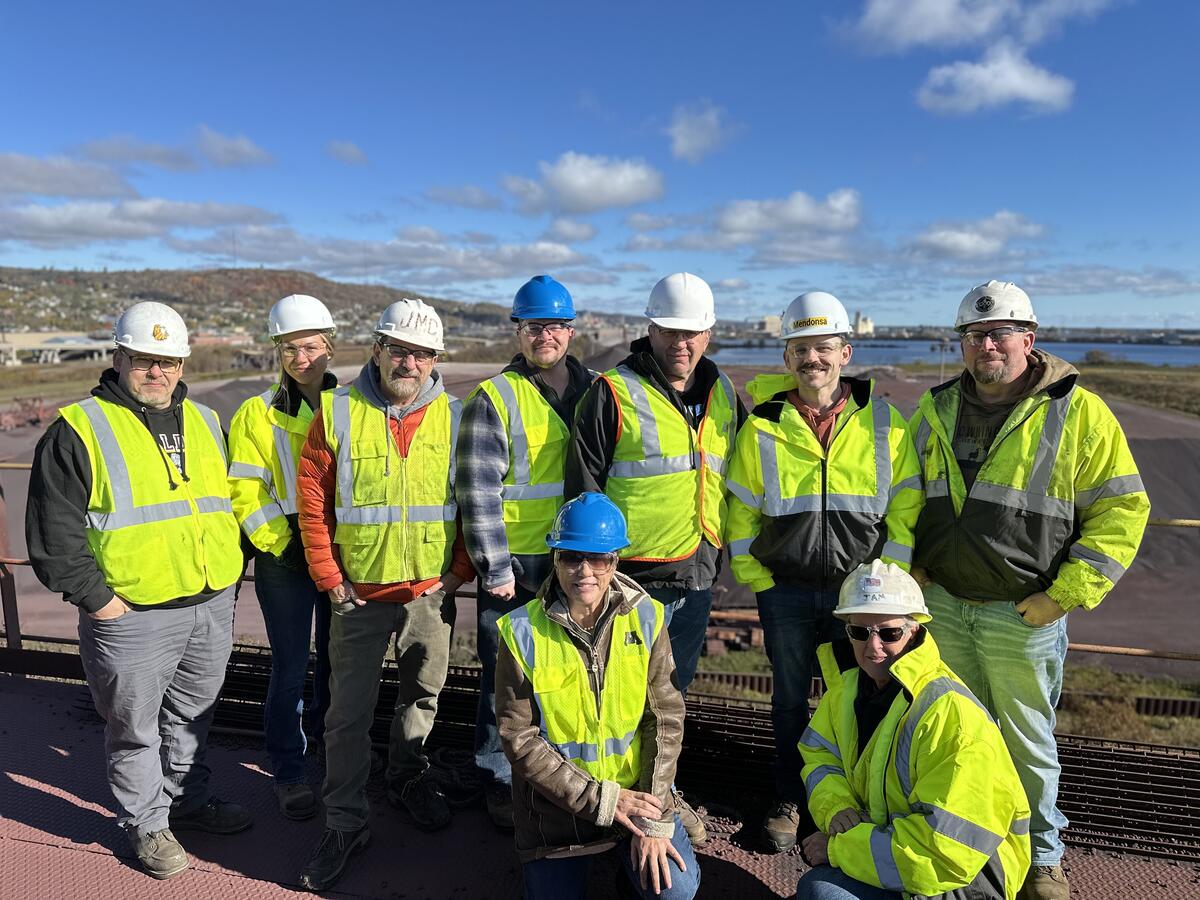Learning from others is powerful. But finding the right “teacher” is important.
NRRI Coleraine’s Safety Committee had two reasons to tap Nate Atkinson, Manager of Safety & Compliance for the Canadian National Railway. One, their ore docks operate under strict safety regulations. And two, they ship Minnesota taconite, a key focus of the NRRI Coleraine Analytical Laboratory.

“Our visit offered insight into the unique safety challenges faced at the docks and reinforced the importance of the analyses NRRI carries out in collaboration with the iron industry,” said Jean Cranston, NRRI Manager of Quality, Environmental Health, Safety and Training.
CN Railway safety is regulated by the Federal Railroad Administration, the U.S. Coast Guard and several other regulating bodies. OSHA, the ubiquitous Occupational Safety and Health Administration, regulates the docks, stockyards and workspaces. So the CN Safety Team works diligently to maintain high safety standards in these complex operations. The NRRI Safety Team shared experiences and learnings with their hosts and came away with new insights that they plan to bring back to the Institute.
The value of NRRI’s taconite pellet testing – disintegration, durability and compression – were observed first hand as the pellets are shipped at the docks.
Low-Temperature Disintegration Test:
Duluth’s harsh winters can significantly impact the physical durability of iron ore pellets. The low-temperature disintegration test helps to determine whether pellets shipped through cold environments—like those encountered at the West Duluth docks—maintain their integrity. Stronger pellets mean less material loss and greater efficiency during shipping.
Drop Test:
The drop test is another crucial assessment for determining the durability of iron ore pellets. It evaluates how well the pellets withstand physical impacts, such as those they endure when being loaded, dropped, or moved along conveyors. This is particularly important at the ore docks, where iron ore is transferred from railcars to ships. Ensuring that the pellets remain intact through these processes helps reduce the formation of fines (small particles), which can affect efficiency.
Pellet Compression Testing:
During handling, stacking, and shipping, iron ore pellets endure substantial mechanical pressures. In these stages, pellets that lack sufficient compression strength can break down under the weight of stacking or the stresses of transportation. Pellet compression testing ensures that the ore can endure these pressures without degrading, preserving its quality for steelmaking.

The field trip was arranged by NRRI Research Safety Professional, Matt Johnson. He had visited the docks as a graduate student and thought it was a great opportunity for NRRI’s Safety Team to see the transportation elements of the taconite industry in action.
“We really appreciate the time and effort our team puts into the safety culture at our Coleraine facility,” said Johnson. “With the support of Nate as our gracious and knowledgeable host at the ore docks, I hope our committee was able to walk away with some new insight and a deeper sense of the meaningfulness of their work.”
PHOTO TOP (From left standing) Eric Johnson, Sam Harbin, Joe Cannella, Matt Johnson, Don Reiser, Tyler Mendosa, and Tony Masching, (kneeling) Jean Cranston and Julie Mutchler.
